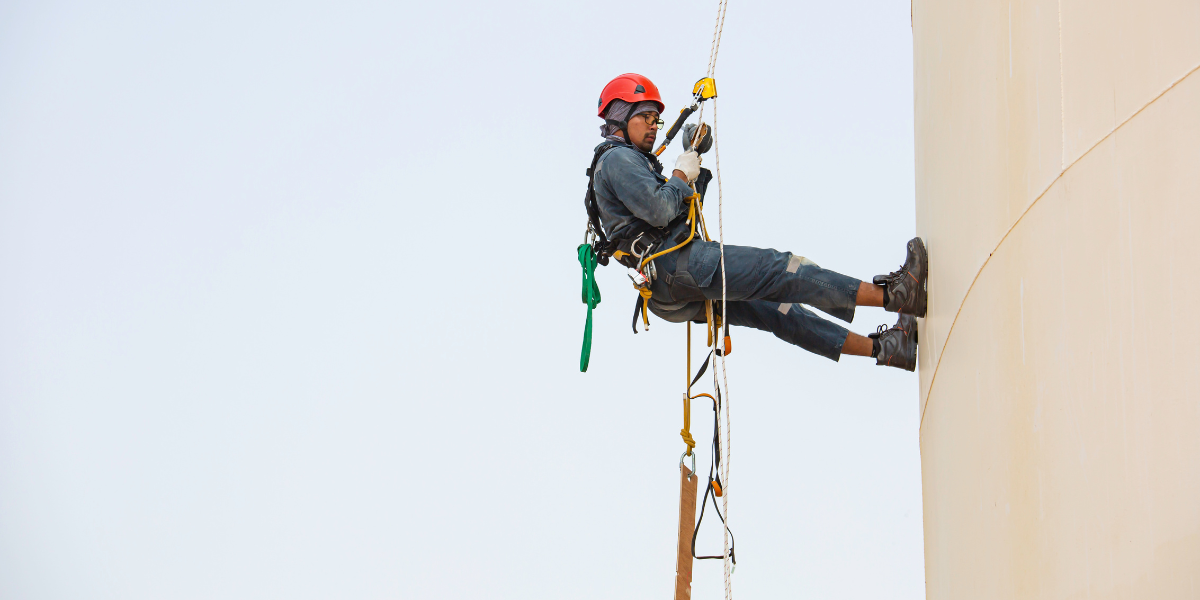2 min read
The Power of Asking Better Questions for Safety and Accountability
Concord Tank Corporation
May 15, 2024 11:15:00 AM

The questions we ask ourselves play a profound role in shaping our perspectives and influencing the world around us. This is particularly true when it comes to matters of job site safety, where the questions we pose can have a significant impact on our well-being. In this blog post, we'll explore the importance of asking the right questions and how they can promote personal accountability for better safety outcomes.
In this blog post, we will explore the following:
The Problem with "Why" Questions:
Have you ever found yourself pondering questions like these:
-
Why is he always showing up late?
-
Why does he always forget to wear earplugs?
-
Why doesn't the office/customer communicate better?
-
Why didn't they catch that mistake?
-
When is the office going to write better safety meetings?
While these questions may seem natural, they are, in fact, counterproductive. They all share a common theme: placing blame on someone else for not meeting your expectations. Such questions do little to improve safety and can lead to poor results.
Shifting the Perspective:
To achieve industry-leading safety and quality, we must start asking better questions. Instead of focusing on what others should be doing, we should center our inquiries on personal accountability. The only thing we can truly change is how we respond to a situation.
Taking a Big Picture View
Rather than assigning blame, it's more productive to recognize the existence of a problem and seek solutions collaboratively. Consider these alternative questions:
-
Someone is late. How can I clearly communicate the importance of being on time?
-
The trailer seems disorganized frequently. What can I do to help keep it organized?
-
It seems like this task always gets missed. How can I help prevent that mistake in the future?
-
What steps can I take to ensure that this tool gets fixed or replaced?
Guidelines for Asking Better Questions
To help you formulate more effective questions, let's refer to some guidelines from the book "QBQ! The Question Behind the Question" by John G. Miller:
- Good questions begin with "What" or "How" (not "Why," "When," or "Who"): Starting your questions with "What" or "How" encourages a problem-solving approach rather than dwelling on blame.
- Good questions contain an "I" (not "they," "them," "we," or "you"): By using "I" in your questions, you assume personal responsibility, making it clear that you are part of the solution.
- Good questions focus on action: Effective questions lead to actionable steps, driving you towards tangible solutions rather than abstract discussions.
Conclusion
The questions we ask ourselves matter, especially in the realm of safety. By shifting our perspective and asking better questions that promote personal accountability and action, we can contribute to safer and more productive environments. Remember, it's not about pointing fingers; it's about finding solutions and making a positive impact.
ABOUT CONCORD TANK
Concord Tank Corporation specializes in tank repairs and terminal maintenance. We help simplify and expedite your projects without sacrificing safety and quality. From initial decommissioning through to the final return to service, our experienced team can take care of your tank project needs. Our services include API 653 tank repairs, in-service leg pinning, terminal maintenance projects, storage tank cleaning, floating roof seal repairs, aluminum IFR installation, and more.


